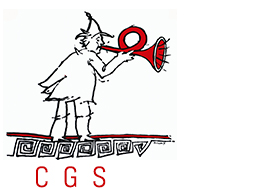Best Italian World Music Band, MEI 2010
Babel Med Music 2011
globalFEST NY 2012
WOMEX 2012
SXSW 2013
WOMAD 2013
SZIGET 2014 and 2015
Celtic Connections 2015
WOMADelaide, WOMAD New Zealand 2015
Cambridge Folk Festival 2015
FMM Sines 2015
Off Fest Skopje 2016
Festival Med Loulé 2017
Førde Festivalen 2018
Paleo Festival 2018
SZIGET 2018
Formed by writer Rina Durante in 1975, Canzoniere Grecanico Salentino is regarded as Italy’s leading and longest-standing traditional music ensemble, hailing from the Salento, the heel of the Italian boot, in Puglia.
Italy’s fascinating dichotomy of tradition and modernity come together in the music of CGS: the seven piece band and dancer are the leading exponents in a new wave of young performers re-inventing Southern Italy’s Pizzica musical and dance traditions for today’s global audience.
The tens of thousands who often congregate for this Lecce-based band’s concerts in Italy know: Bandleader, fiddler, and drummer Mauro Durante and company can make an audience shimmy with the energy of the ancient ritual of pizzica tarantata, said to cure the taranta spider’s bite with its frenzied trance dances. CGS shows are a life explosion: full of energy, passion, rhythm and mystery, they bring the audience from the past into modernity, and back.
Leadership of the ensemble was handed down to Durante by his acclaimed father Daniele, in 2007. CGS has revitalized both the rousing and the introspective sides of Southern Italian song and dance. Durante continues to innovate and energize, bringing decades of experience playing with global artists (Ballake Sissoko, Ibrahim Maalouf, Piers Faccini), contemporary classical composers (Ludovico Einaudi), and pop mavericks (Stewart Copeland of The Police).
At the age of 26, Durante was already the musical assistant of Ludovico Einaudi, Maestro Concertatore of the powerful Italian La Notte della Taranta festival, and worked with him in the creation and artistic production of that spectacular performance. CGS open the Concertone of La Notte della Taranta in Melpignano, performing live in front of over 100.000 people.
Critically acclaimed with 19 albums and countless live performances throughout USA, Canada, Europe and the Middle East, in 2010 CGS was awarded Best Italian World Music Group at Italy’s MEI confab.
Line up: Mauro Durante (voice, frame drums, violin), Alessia Tondo (voice), Giulio Bianco (Italian bagpipes, harmonica, recorders), Massimiliano Morabito (diatonic accordion), Emanuele Licci (voice, guitar, bouzouki), Giancarlo Paglialunga (voice, tamburrieddhu), Silvia Perrone (dance) .
Repertoire
Most of the songs played by the Canzoniere Grecanico Salentino are music for dance: the traditional dance of Salento, called pizzica or, nowadays, taranta. This dance is linked to a local cultural phenomenon called tarantism; sometimes it is danced between woman and man, as a form of courtship.
This kind of music is passional, obsessive and conducive to trance, owing to the fact that its main rhythmical actor is a local type of frame drum, the tamburello, which resounds like a never-stopping beating heart. The power of this music is at its highest during live shows, when the audience moves and dances to the rhythm.
Geographic origin
Salento is a crossroads with the geographical and cultural features of a free zone for trade which was not allowed elsewhere, due to political and religious reasons. Salento belonged to the Eastern Roman Empire, and after the fall of the Empire, Otranto took on a special role, which culturally benefited and enriched the people. However, by the same token, Salento is a “finis terrae”, a peninsula that in some ways is like an island. The insular nature of Salento is testified by the fact that tarantism (a cultural phenomenon of trance and possessions) has endured to the present day in this area. It is no coincidence that the Salento dialect has morphological, phonological, and prosodic features that are entirely different from those in the rest of Puglia.
Notes about tarantism
Undoubtedly the most studied cultural phenomenon of Salento, Tarantism is popularly believed to result from the bite of a kind of spider called taranta. The spider’s bite would put its victims (tarantati) in a state of heightened excitability and restlessness which could only be overcome by engaging in frenzied dancing. Tarantism is a ritual of possession that includes the playing of pizzica tarantata. It occurs when all of the following circumstances coexist: credence in the taranta bite, which hurts and causes an illness that must be cured by dancing; an altered state of consciousness, organized and regulated in a way that is socially accepted within a rite accompanied by music; believing that the music regulates the trance and gives it an order and that the tarantata reacts to the sound of the tamburello and comes to life.
Leggi tutto: Notes about tarantism
